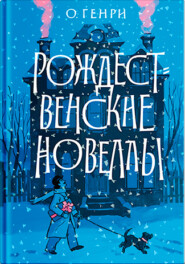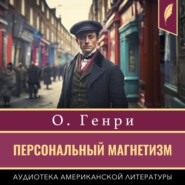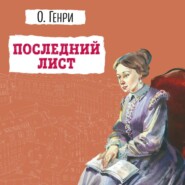По всем вопросам обращайтесь на: info@litportal.ru
(©) 2003-2024.
✖
Strictly Business: More Stories of the Four Million
Настройки чтения
Размер шрифта
Высота строк
Поля
"I'll be around to-morrow at 10:15," said Thomas, "with some spinach and a case of carbonic."
"I'll practice that what-you-may-call-it," said Celia. "I can whistle a fine second."
The processes of courtship are personal, and do not belong to general literature. They should be chronicled in detail only in advertisements of iron tonics and in the secret by-laws of the Woman's Auxiliary of the Ancient Order of the Rat Trap. But genteel writing may contain a description of certain stages of its progress without intruding upon the province of the X-ray or of park policemen.
A day came when Thomas McLeod and Celia lingered at the end of the latticed "passage."
"Sixteen a week isn't much," said Thomas, letting his cap rest on his shoulder blades.
Celia looked through the lattice-work and whistled a dead march. Shopping with Aunt Henrietta the day before, she had paid that much for a dozen handkerchiefs.
"Maybe I'll get a raise next month," said Thomas. "I'll be around to-morrow at the same time with a bag of flour and the laundry soap."
"All right," said Celia. "Annette's married cousin pays only $20 a month for a flat in the Bronx."
Never for a moment did she count on the Spraggins money. She knew Aunt Henrietta's invincible pride of caste and pa's mightiness as a Colossus of cash, and she understood that if she chose Thomas she and her grocer's young man might go whistle for a living.
Another day came, Thomas violating the dignity of Nabob Avenue with "The Devil's Dream," whistled keenly between his teeth.
"Raised to eighteen a week yesterday," he said. "Been pricing flats around Morningside. You want to start untying those apron strings and unpinning that cap, old girl."
"Oh, Tommy!" said Celia, with her broadest smile. "Won't that be enough? I got Betty to show me how to make a cottage pudding. I guess we could call it a flat pudding if we wanted to."
"And tell no lie," said Thomas.
"And I can sweep and polish and dust – of course, a parlor maid learns that. And we could whistle duets of evenings."
"The old man said he'd raise me to twenty at Christmas if Bryan couldn't think of any harder name to call a Republican than a 'postponer,'" said the grocer's young man.
"I can sew," said Celia; "and I know that you must make the gas company's man show his badge when he comes to look at the meter; and I know how to put up quince jam and window curtains."
"Bully! you're all right, Cele. Yes, I believe we can pull it off on eighteen."
As he was jumping into the wagon the second parlor maid braved discovery by running swiftly to the gate.
"And, oh, Tommy, I forgot," she called, softly. "I believe I could make your neckties."
"Forget it," said Thomas decisively.
"And another thing," she continued. "Sliced cucumbers at night will drive away cockroaches."
"And sleep, too, you bet," said Mr. McLeod. "Yes, I believe if I have a delivery to make on the West Side this afternoon I'll look in at a furniture store I know over there."
It was just as the wagon dashed away that old Jacob Spraggins struck the sideboard with his fist and made the mysterious remark about ten thousand dollars that you perhaps remember. Which justifies the reflection that some stories, as well as life, and puppies thrown into wells, move around in circles. Painfully but briefly we must shed light on Jacob's words.
The foundation of his fortune was made when he was twenty. A poor coal-digger (ever hear of a rich one?) had saved a dollar or two and bought a small tract of land on a hillside on which he tried to raise corn. Not a nubbin. Jacob, whose nose was a divining-rod, told him there was a vein of coal beneath. He bought the land from the miner for $125 and sold it a month afterward for $10,000. Luckily the miner had enough left of his sale money to drink himself into a black coat opening in the back, as soon as he heard the news.
And so, for forty years afterward, we find Jacob illuminated with the sudden thought that if he could make restitution of this sum of money to the heirs or assigns of the unlucky miner, respite and Nepenthe might be his.
And now must come swift action, for we have here some four thousand words and not a tear shed and never a pistol, joke, safe, nor bottle cracked.
Old Jacob hired a dozen private detectives to find the heirs, if any existed, of the old miner, Hugh McLeod.
Get the point? Of course I know as well as you do that Thomas is going to be the heir. I might have concealed the name; but why always hold back your mystery till the end? I say, let it come near the middle so people can stop reading there if they want to.
After the detectives had trailed false clues about three thousand dollars – I mean miles – they cornered Thomas at the grocery and got his confession that Hugh McLeod had been his grandfather, and that there were no other heirs. They arranged a meeting for him and old Jacob one morning in one of their offices.
Jacob liked the young man very much. He liked the way he looked straight at him when he talked, and the way he threw his bicycle cap over the top of a rose-colored vase on the centre-table.
There was a slight flaw in Jacob's system of restitution. He did not consider that the act, to be perfect, should include confession. So he represented himself to be the agent of the purchaser of the land who had sent him to refund the sale price for the ease of his conscience.
"Well, sir," said Thomas, "this sounds to me like an illustrated post-card from South Boston with 'We're having a good time here' written on it. I don't know the game. Is this ten thousand dollars money, or do I have to save so many coupons to get it?"
Old Jacob counted out to him twenty five-hundred-dollar bills.
That was better, he thought, than a check. Thomas put them thoughtfully into his pocket.
"Grandfather's best thanks," he said, "to the party who sends it."
Jacob talked on, asking him about his work, how he spent his leisure time, and what his ambitions were. The more he saw and heard of Thomas, the better he liked him. He had not met many young men in Bagdad so frank and wholesome.
"I would like to have you visit my house," he said. "I might help you in investing or laying out your money. I am a very wealthy man. I have a daughter about grown, and I would like for you to know her. There are not many young men I would care to have call on her."
"I'm obliged," said Thomas. "I'm not much at making calls. It's generally the side entrance for mine. And, besides, I'm engaged to a girl that has the Delaware peach crop killed in the blossom. She's a parlor maid in a house where I deliver goods. She won't be working there much longer, though. Say, don't forget to give your friend my grandfather's best regards. You'll excuse me now; my wagon's outside with a lot of green stuff that's got to be delivered. See you again, sir."
At eleven Thomas delivered some bunches of parsley and lettuce at the Spraggins mansion. Thomas was only twenty-two; so, as he came back, he took out the handful of five-hundred-dollar bills and waved them carelessly. Annette took a pair of eyes as big as creamed onion to the cook.
"I told you he was a count," she said, after relating. "He never would carry on with me."
"But you say he showed money," said the cook.
"Hundreds of thousands," said Annette. "Carried around loose in his pockets. And he never would look at me."
"It was paid to me to-day," Thomas was explaining to Celia outside. "It came from my grandfather's estate. Say, Cele, what's the use of waiting now? I'm going to quit the job to-night. Why can't we get married next week?"
"Tommy," said Celia. "I'm no parlor maid. I've been fooling you. I'm Miss Spraggins – Celia Spraggins. The newspapers say I'll be worth forty million dollars some day."
Thomas pulled his cap down straight on his head for the first time since we have known him.
"I suppose then," said he, "I suppose then you'll not be marrying me next week. But you can whistle."
"No," said Celia, "I'll not be marrying you next week. My father would never let me marry a grocer's clerk. But I'll marry you to-night, Tommy, if you say so."
Old Jacob Spraggins came home at 9:30 P. M., in his motor car. The make of it you will have to surmise sorrowfully; I am giving you unsubsidized fiction; had it been a street car I could have told you its voltage and the number of wheels it had. Jacob called for his daughter; he had bought a ruby necklace for her, and wanted to hear her say what a kind, thoughtful, dear old dad he was.
There was a brief search in the house for her, and then came Annette, glowing with the pure flame of truth and loyalty well mixed with envy and histrionics.
"Oh, sir," said she, wondering if she should kneel, "Miss Celia's just this minute running away out of the side gate with a young man to be married. I couldn't stop her, sir. They went in a cab."

















